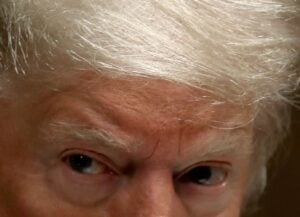 Judge Tanya Chutkan has once again managed to parry Donald Trump’s efforts to slow down his election interference case in DC. And she did it with a minimum of fuss, while foreclosing the possibility of appellate review.
Judge Tanya Chutkan has once again managed to parry Donald Trump’s efforts to slow down his election interference case in DC. And she did it with a minimum of fuss, while foreclosing the possibility of appellate review.
From the moment this indictment was filed, Trump has publicly expressed his intention to assert an advice of counsel defense. His lawyer John Lauro confirmed this in dozens of public statements, such as on August 6 when he told NBC’s Meet the Press that his client was being indicted for “following legal advice from an esteemed scholar, John Eastman,” adding, “one thing for certain, President Trump acted under the advice of counsel when he petitioned, under the First Amendment, petitioned Mr. Pence.”
At the same time, dozens of witnesses were asserting attorney-client privilege with respect to their communications with the former president — a privilege which would have to be waived in the event that Trump were to make good on his threat to claim advice of counsel. So on October 10, the special counsel moved to force disclosure of Trump’s intent to assert the defense by December 18 when the exhibit lists are due. Prosecutors reasoned that allowing Trump to hold off asserting this defense until the trial would deprive the government of the opportunity to get those witnesses in for deposition. And they argued that Trump would suffer no hardship from disclosing to the court something he’s already disclosed to millions of people on national television.
As per usual, Trump affected to be SHOCKED, SHOCKED at the government’s request “that the Court depart from ordinary order and invent an entirely new set of rules that would require President Trump, but not the prosecution, to provide detailed descriptions of core defense work product two and a half months before trial.”
“Indeed, the prosecution’s request demonstrates the constitutionally fatal unfairness of this entire proceeding,” they said, presumably from a fainting couch, while fanning themselves furiously and clutching a string of pearls.
Trump’s lawyers did make one concession, however, agreeing to declare their intent to present a “formal advice of counsel defense” on January 15, 2024 when jury instructions are due. This was followed by a bizarre request that Judge Chutkan solicit briefing in January, just six weeks before the trial, “to determine a reasonable schedule for President Trump’s production of relevant materials” in the event of an advice of counsel assertion. And it dropped down to an even more bizarre footnote in which Trump’s lawyers appeared to describe an informal advice of counsel defense that would spare their client having to waive attorney-client privilege.
Without addressing the admissibility of any particular evidence, evidence regarding President Trump’s state of mind is probative, regardless of whether he requests a formal advice of counsel instruction. Thus, so long as the President Trump relies only on the prosecution’s productions of attorney communications, and does not inject any new records into the case to which the prosecution does not have access, the sword remains in the sheath and President Trump should have no additional disclosure obligations beyond those required by Rule 16.
It’s not clear what Trump meant by this, and Judge Chutkan didn’t waste time trying to parse it. Instead she took the easy out and ordered Trump to make good on his offer to declare his intentions on January 15. Brushing aside the request that Trump should be able to draw out the process of disclosing what advice and which counsel, the court noted that “Defendant cites no precedent for that procedure, and it runs contrary to the standard practice of requiring that disclosure accompany notice, since that notice waives attorney-client privilege.”
The court did not reach the weird “informal” footnote, ignoring it like an unfortunate odor it would be impolite to acknowledge, which … well, fair. Instead Judge Chutkan crafted and order which will force Trump to state his intentions in relatively timely fashion and on a schedule which he’s already agreed to and cannot appeal.
Now it’s on to the four pending motions to dismiss, plus several miscellaneous filings intended to slow this case down and get it postponed until after the 2024 election.
THANK U NEXT.
US v. Trump [DDC Docket via Court Listener]
Liz Dye lives in Baltimore where she writes about law and politics.



